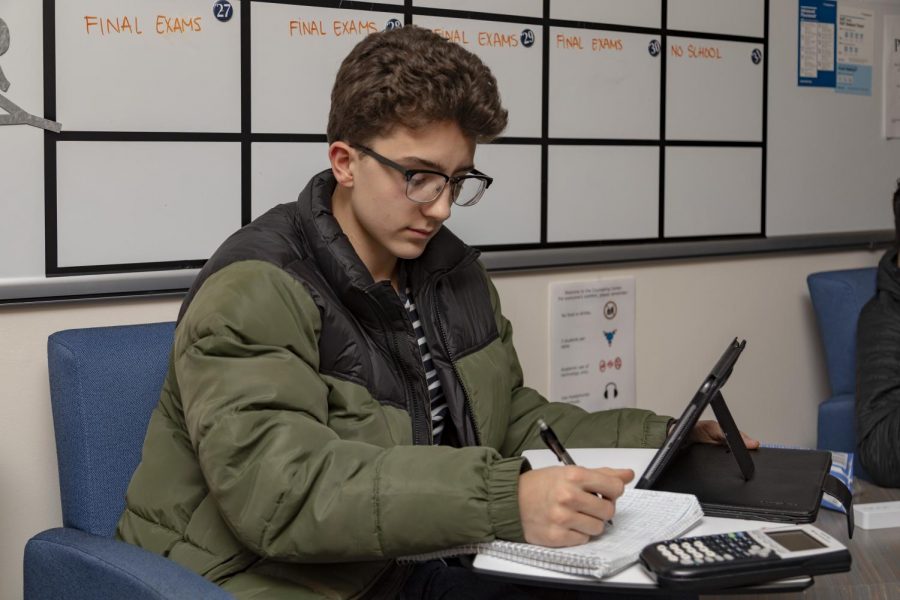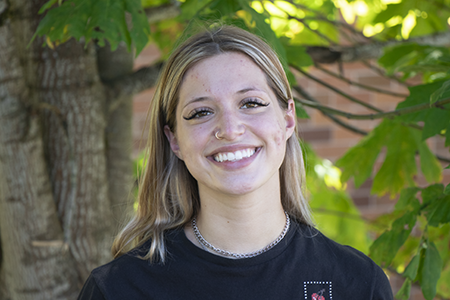Studying 101: How to Survive Dead Week and Finals
Start studying for finals earlier to reduce your overall stress, and increase your readiness for exams.
January 15, 2020
With finals almost here, students, including myself, are beginning to frantically get ready for their upcoming tests. For me, this time of year is highly anxiety inducing and stressful, if I don’t take the correct precautions.
Studying habits directly impact the results of your final exams, which can be scary. So it is important to have good studying tips and tricks. Below are ten tips that help me get through finals and dead week, that you can use to reduce stress and anxiety.
Get help from teachers
This may seem obvious, but if you are struggling in a specific subject, reach out to your teacher. I have recently been struggling in Chemistry, so after school I received help from my Chemistry teacher, Ms. Carie Coleman, and let me tell you, I learned more chemistry one on one with her than I have all year.
Teachers are there to help you learn, and if you are having a hard time understanding, they will do all they can to help you succeed. They can also give pointers on what to study for the final, and help complete study guides.
Stay healthy
Getting the right amount of sleep, eating healthy foods, and staying hydrated are all great ways of making your body happy, and ensuring that you have to energy to face anything that comes your way.
It is important to stay well rested because a good night’s rest helps you learn by increasing your focus, promoting a stronger memory, and drinking water along with eating fights the crabbiness that comes when you’re dehydrated and hungry.
Organize
Organization is key when it comes to studying. When I write down notes in class, after a while I give up and stop trying to make them look neat and nice, so they end up getting pretty chaotic. If you’re like me, rewriting your notes cleans them up and it allows you to review your notes again.
Going back and color coding your notes also makes it easy to find what you need, and drawing pictures can also help your understanding of your notes.
Study with friends
If you work better in groups, grab a few friends to have study sessions with. This is a fun way to start reviewing for your finals, as long as everyone can stay on task. However, if you need a break, you can just hang out and mess around for a bit if you’re feeling overwhelmed.
Start early
No. Matter. What. Do not wait until the night of your first final to start studying. Starting early ensures you have enough time to cover everything you need to know and also allows you to get help if needed. Don’t put off studying, because it will most likely increase stress and anxiety about your finals.
Know how you learn
Everyone learns differently, so try to discover what works best for you. There are seven different types of learning styles according to Mindvalley, and if you adapt your studying style to what works best for you, then it can help your understanding of subjects.
Visual learners: People who understand concepts better when they are taught through pictures and visual elements.
Aural learners: People who prefer to learn through listening to music and songs.
Verbal learners: People who absorb information through verbal instruction and writing.
Physical learners: People who retain information best from hands on activities and objects.
Logical learners: People who understand their studies better when they are organized, and trying to find the connections between concepts.
Social learners: People who learn by working with others around them, verbally engaging with the subject.
Solitary learners: People who grasp information better when working individually, teaching and solving problems themselves.
Get rid of distractions
People, music, and especially technology can all potentially be distractions when trying to study. It’s very hard for me to not get distracted when I receive notifications on my phone, so I put my phone on do not disturb to avoid distraction. Certain things take away from helping your learning process — try to identify these things, and cut them out altogether.
Study in increments
When I’m constantly studying, it makes me very bored, antsy, and unable to focus. To avoid this, I try to study in increments of 30 minutes, and take breaks in-between, by making food, watching my favorite TV show, or jammin’ out to music.
Listen to music
Music can help you stay on track when studying, especially non-vocal instrumental music. I also enjoy listening to music in different languages, because I have no idea what is being said, but I can still enjoy the music without getting distracted by the lyrics.
For me at least, music in different languages and without vocals doesn’t distract me, but also fills the silent void when studying, giving me something to listen to.
Don’t psych yourself out. Period.
The best way to take on finals week is when you’re calm and ready. It’s important to not psych yourself out before tests, because this can cause anxiety and doubt, making you not feel your best for test taking.
To avoid psyching yourself out, you can follow the tips above, or if you’re feeling overwhelmed, try taking deep breaths or meditating.
Getting ready for finals is all in the mindset you have towards it. Make sure you’re ready by studying and staying healthy to reduce your overall stress and anxiety.






Maddie khaw • Jan 15, 2020 at 10:45 pm
Good job Maya!! I love the part about the learning styles